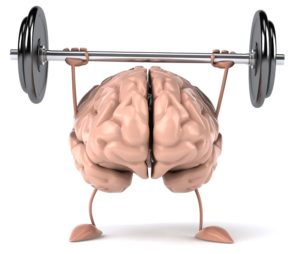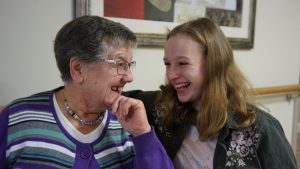If you didn’t know your age, how old do you think you would be?

The Queen made a brilliant response to a request from the ‘Oldie’ magazine last month to accept an award for ‘Oldie of The Year’. She said that because she believes that ‘you are as old as you feel’ she does not meet the award criteria. The magazine was so impressed with her response that it put her photograph and comment on the front cover. And she is right! Research shows that feeling younger than you are can not only delay the ageing process, but turn it back.
It was proven by an experiment conducted in 1979 by Dr Ellen Langer, social psychologist in the Psychology Department at Harvard University. Always intrigued by the effect of our minds on our bodies, she and her team devised a study which they called ‘the Counter-clockwise Study.’ They took groups of eight men in their 80s on a week-long retreat in a house that had been retrofitted and completely taken back to 1955. Every item in the house belonged to that period of time – the furniture, the china and cutlery, even the magazines and newspapers. All the men were interviewed beforehand and took baseline physical and psychological tests. They were thoroughly briefed and prepared.
Back to the future
The experimental group were to live in the house as though they were living in 1959. They were not to bring any books, newspapers, or family pictures that were later than 1959. They were literally to go back in time, to turn their minds back and live in that year, not discussing anything after 1959. The team carefully studied what life was like in 1959 – the politics and social issues, the TV shows – everything the men would have encountered in that year that would effectively take them back to it. The team met with the men daily, and discussed events that were happening and watched films of the era. A control group that came separately another week was just to enjoy the week and reminisce about 1959.
What happened? After the retreat the team tested the participants and found that indeed, the mind has enormous control over the body. On many of the measures the participants got younger. In the experimental group their fingers lengthened as arthritis diminished and they were able to move them more and they had greater manual dexterity. There were improvements in height, weight, gait, posture and scores in intelligence tests. Finally, independent observers who were unaware of the experiment were asked to examine the photographs taken before, and after the week’s retreat. ‘Those objective observers judged that all those experimental participants looked noticeably younger at the end of the study.’[i]
The same effect was found by researchers at the German Centre of Gerontology, and published this year in the journal ‘Psychology and Ageing[ii] . They conducted a three-year study of 5,039 people aged 40-95 and found that one reason for the link between subjective age (as old as you feel) and good health is that feeling younger protects middle-aged and older adults against damaging stress. Stress releases harmful biochemicals that have an ageing effect. Lead author M Wettstein suggests that public campaigns to combat ageism and promote positive views on ageing would encourage people to feel younger. Positive attitudes towards old age produce better health and are protective against dementia.
The secret is in Proverbs 4:23, which says, ‘Above everything else, guard your heart; for it is the source of life’s consequences.’
————————————————
[i] Counterclockwise: A Proven Way to Think Yourself Younger and Healthier, Langer, Ellen. (Kindle Locations 327-332). Hodder & Stoughton
[ii] Journal Psychology and Ageing ( Vol. 16, No. 3, 2021)..















